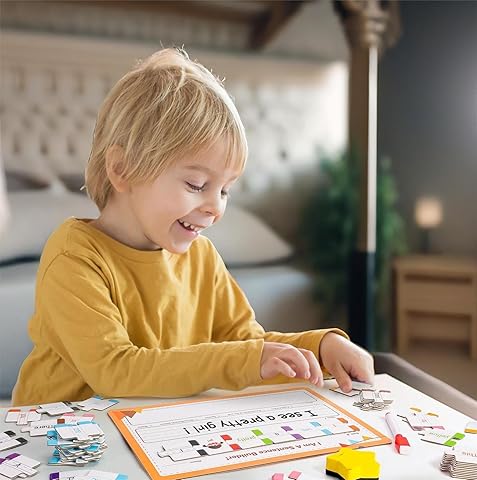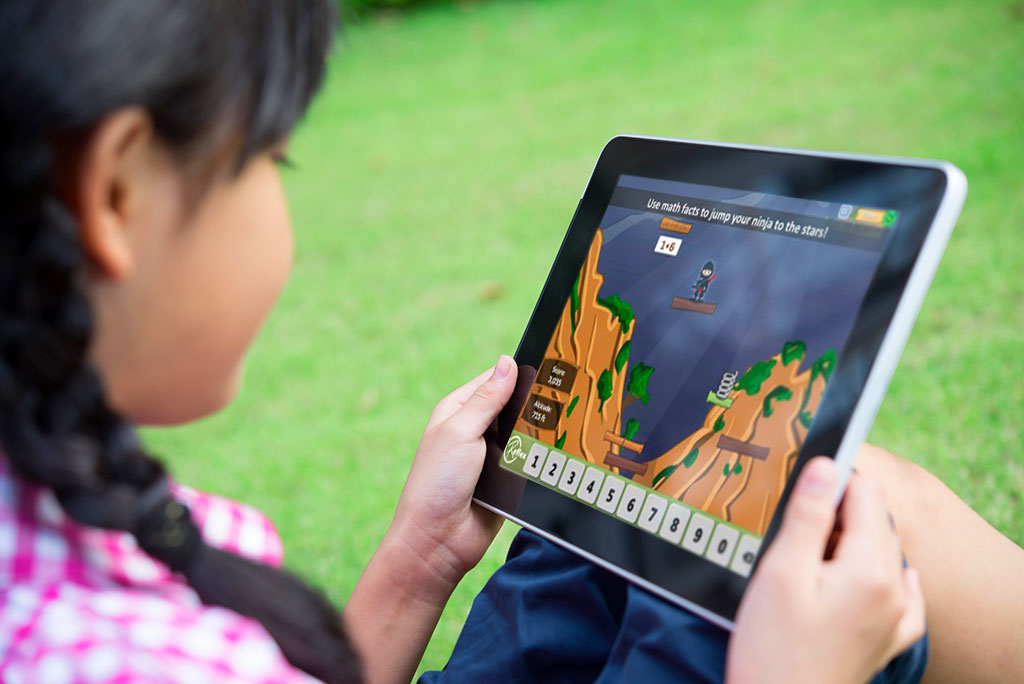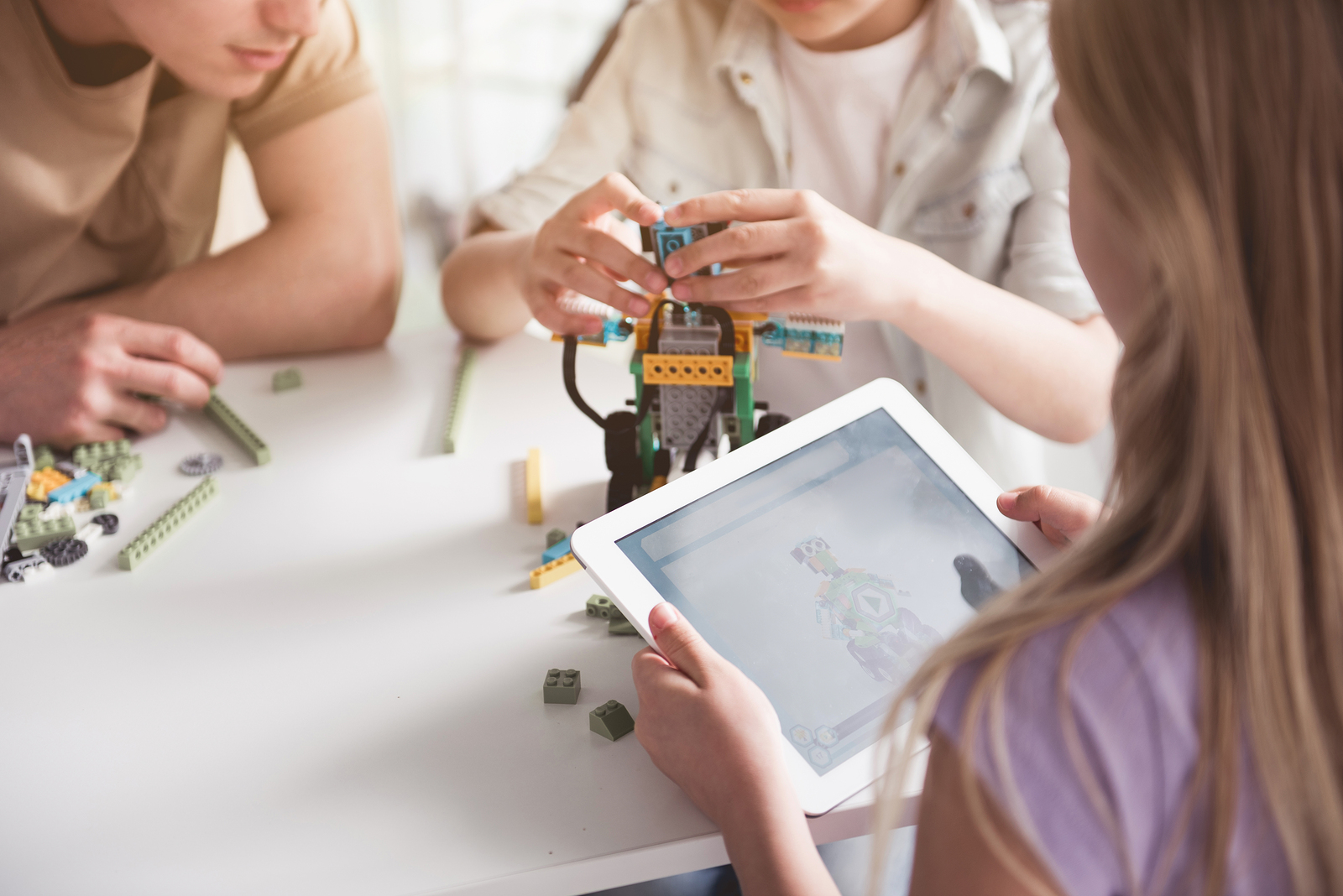10 Best Educational Tech Tools for Kids
Discover the top 10 educational tech tools for kids that blend fun and learning. Interactive Learning Games boost critical thinking and STEM skills. Coding Apps introduce programming in a colorful, engaging way. Virtual Field Trips expand horizons beyond classrooms. Reading Comprehension Tools enhance literacy with quizzes and activities. Math Practice Platforms make math fun and interactive. Science Experiment Simulators ignite curiosity in STEM. Creative Storytelling Apps foster imagination. Language Learning Programs offer a fun path to multilingualism. Music and Art Creation Tools inspire creativity. Start exploring these tools now for an enriching tech-driven learning experience.
Key Takeaways
- Interactive learning games for cognitive development and critical thinking.
- Coding apps introduce programming skills in a fun way.
- Virtual field trips offer immersive educational experiences.
- Reading comprehension tools enhance literacy skills interactively.
- Math practice platforms strengthen mathematical skills dynamically.
Interactive Learning Games

Engaging children in interactive learning games can enhance their cognitive development and critical thinking skills. By incorporating STEM challenges and problem-solving games into their playtime, kids can sharpen their critical thinking and logical reasoning abilities in a fun and engaging way.
These types of games require children to analyze situations, think creatively, and come up with innovative solutions, all of which are essential skills for success in both academics and real-world scenarios.
STEM challenges provide kids with hands-on experiences that encourage experimentation and problem-solving. Through these activities, children learn how to approach problems systematically, test hypotheses, and adapt their strategies based on outcomes.
This process not only reinforces their understanding of STEM concepts but also fosters a growth mindset where mistakes are seen as opportunities for learning and improvement.
Coding Apps for Kids

Exploring coding apps designed for kids can introduce young learners to the world of programming in a fun and interactive manner. These apps often present coding challenges and programming puzzles in a way that’s both engaging and educational. By solving these challenges, children can develop critical thinking skills, logical reasoning, and problem-solving abilities.
Coding apps for kids come in various formats, from games that teach the basics of coding concepts to more advanced applications that allow children to create their own programs. Some apps use colorful graphics and simple interfaces to make learning to code more accessible and enjoyable for young users. Through interactive activities and step-by-step guidance, kids can grasp fundamental programming principles without feeling overwhelmed.
Moreover, coding apps often provide a safe environment for kids to experiment with coding without the fear of making mistakes. This trial-and-error approach encourages creativity and innovation, fostering a love for technology and coding from a young age. By engaging with coding challenges and programming puzzles, children can lay a strong foundation for future STEM-related endeavors.
Virtual Field Trips
Virtual Field Trips offer engaging virtual experiences that immerse kids in interactive learning opportunities.
By exploring various destinations and subjects online, children can broaden their knowledge and curiosity.
These experiences can enhance traditional learning methods and provide a dynamic way for kids to discover new interests.
Engaging Virtual Experiences
With the rise of technology in education, experiencing virtual field trips provides an immersive and educational opportunity for children to explore beyond the confines of traditional classrooms. Through virtual reality experiences and engaging simulations, students can immerse themselves in environments that might otherwise be inaccessible.
Interactive museum tours offer immersive learning opportunities, allowing kids to explore historical artifacts and cultural exhibits in a way that sparks curiosity and fosters understanding. These engaging virtual experiences not only supplement traditional learning but also cater to various learning styles, making education more inclusive and dynamic.
Interactive Learning Opportunities
Immerse yourself in interactive learning opportunities through virtual field trips, expanding your educational horizons beyond the classroom walls.
Virtual science experiments offer a hands-on approach to scientific concepts, allowing you to conduct experiments in a safe and controlled virtual environment. These simulations provide a unique chance to explore various scientific principles and phenomena that might otherwise be challenging to replicate in a traditional classroom setting.
Engaging history lessons come to life through virtual field trips, transporting you to different time periods and locations with the click of a button. You can witness historical events firsthand, interact with historical figures, and gain a deeper understanding of past civilizations.
These immersive experiences make learning history exciting and memorable, fostering a deeper appreciation for the complexities of the past.
Reading Comprehension Tools

You can enhance your child’s reading comprehension skills through interactive story quizzes, audio book summaries, and vocabulary enhancement games.
These tools provide engaging ways for children to test their understanding of the text, summarize key points, and expand their word knowledge.
Interactive Story Quizzes
Engage young learners with interactive story quizzes, a dynamic tool that enhances reading comprehension skills through engaging activities. By incorporating storytelling techniques and interactive quizzes, these tools provide an immersive learning experience that fosters critical thinking and retention.
Character development plays an essential role in these interactive story quizzes, as engaging narratives featuring well-developed characters capture children’s attention and make the learning process more enjoyable. Through following characters on their journeys and understanding their motivations, children not only improve their reading comprehension but also develop empathy and emotional intelligence.
These quizzes are designed to test understanding at various points in the story, encouraging active engagement with the text. By answering questions and making decisions based on the narrative, children become more involved in the storytelling process, leading to a deeper understanding of the material.
Audio Book Summaries
Audio Book Summaries serve as effective tools for enhancing reading comprehension skills in young learners through concise and engaging narratives. By providing audio book reviews and engaging storytelling activities, these tools offer a unique way for children to improve their summarization challenges and listening comprehension skills.
Listening to audio book summaries allows kids to follow along with the storyline, grasp key plot points, and understand character development in a more interactive manner than traditional reading. This can be particularly beneficial for visual learners or those who struggle with traditional text-based reading comprehension exercises.
Moreover, audio book summaries provide a multisensory experience that can help keep young learners engaged and interested in the content, making it easier for them to retain information and improve their overall comprehension skills. By incorporating these tools into educational activities, parents and educators can create a dynamic learning environment that caters to different learning styles and abilities.
Vocabulary Enhancement Games
Enhancing vocabulary through interactive games is a valuable method for improving reading comprehension skills in children. Vocabulary enhancement games offer a fun and engaging way for kids to expand their word knowledge while honing their reading abilities.
These games often include spelling challenges and word puzzles that require players to correctly spell and identify words within a given context.
Synonym matching games prompt children to find words with similar meanings, enhancing their understanding of word relationships and nuances.
Definition guessing games encourage kids to infer the meaning of new words based on context clues, fostering critical thinking skills alongside vocabulary growth.
Math Practice Platforms

Interactive math practice platforms offer a dynamic and engaging way for children to strengthen their mathematical skills. These platforms often incorporate math puzzles and problem-solving activities that challenge young learners while making the learning process enjoyable.
Math puzzles on these platforms can range from simple arithmetic problems to more complex logic-based challenges, catering to a wide range of skill levels and ages.
By engaging with math practice platforms, children can enhance their problem-solving abilities as they work through various mathematical concepts. These platforms provide instant feedback, allowing kids to learn from their mistakes and improve their understanding of different math topics.
Through consistent use of these tools, children can build confidence in their math skills and develop a positive attitude towards problem-solving.
Science Experiment Simulators

Exploring beyond math practice platforms, science experiment simulators provide an interactive virtual environment for children to engage in hands-on scientific exploration and discovery. These hands-on simulations offer a unique way for kids to investigate experiments in a safe and controlled setting.
Science experiment simulations allow young learners to explore various scientific concepts, from chemistry to physics, through interactive lab tools that mimic real-life experiments. By utilizing virtual lab experiences, children can observe reactions, make predictions, and draw conclusions just like in a physical laboratory.
These interactive lab tools not only make science fun and engaging but also help in developing critical thinking and problem-solving skills. Through science experiment simulations, kids can learn how to follow procedures, analyze data, and understand complex scientific processes in a visually stimulating manner.
This virtual approach to science experiments can ignite curiosity and a passion for STEM fields in children, paving the way for future scientific exploration and discovery.
Creative Storytelling Apps
Crafting narratives with modern technology has become more accessible through the integration of creative storytelling apps. These apps offer a wealth of interactive storytelling activities, making the process of creating and sharing stories engaging for kids. Storytelling workshops within these apps provide valuable guidance on structuring narratives, developing characters, and building plotlines. By participating in creative writing challenges, children can enhance their storytelling skills while having fun.
Moreover, creative storytelling apps incorporate various digital storytelling techniques, allowing young storytellers to experiment with diverse multimedia elements such as images, audio, and animations. This not only boosts creativity but also helps in developing digital literacy skills from a young age.
Through these apps, kids can bring their imagination to life and share their stories with a wider audience, fostering confidence and communication abilities.
Language Learning Programs
You can explore a variety of interactive language apps designed to make learning a new language fun and engaging.
These apps often include vocabulary games that help expand your child’s word bank while keeping them entertained.
Additionally, pronunciation practice tools can assist in perfecting accents and intonation, making language learning more effective and enjoyable for young learners.
Interactive Language Apps
Interactive language apps offer children engaging and effective ways to learn new languages through interactive exercises and games. These apps provide a unique opportunity for language immersion by exposing kids to authentic language use in a fun and interactive manner. Through these apps, children can explore different cultures, traditions, and customs, gaining a deeper understanding of the world around them.
By incorporating elements of cultural exploration, interactive language apps go beyond teaching vocabulary and grammar. They allow children to experience firsthand the richness of diverse languages and societies. Through virtual travel experiences, language learning becomes not just a skill acquisition but a journey of discovery and appreciation for different ways of life.
With features like interactive conversations, quizzes, and storytelling, these apps make language learning enjoyable and engaging for kids. They foster a sense of curiosity and open-mindedness, encouraging children to embrace diversity and become global citizens.
Interactive language apps truly bring the world to children’s fingertips, making language learning a dynamic and enriching experience.
Engaging Vocabulary Games
Through immersive and interactive gameplay, engaging vocabulary games in language learning programs provide children with a dynamic and effective way to expand their language skills. These games offer a fun and engaging way for kids to enhance their vocabulary while enjoying the learning process.
Spelling challenges within these games not only test children’s spelling abilities but also help them familiarize themselves with new words. Word searches are another popular feature that aids in vocabulary expansion by requiring kids to search for and identify specific words within a grid of letters.
Additionally, synonym exercises encourage children to explore different words with similar meanings, broadening their vocabulary and language comprehension. Crossword puzzles, a classic favorite, challenge kids to think critically about word relationships and meanings, further strengthening their language skills.
Pronunciation Practice Tools
Pronunciation practice tools in language learning programs offer children a valuable opportunity to refine their speaking skills and enhance their overall language proficiency. These tools focus on pronunciation improvement through innovative features like speech recognition technology, providing real-time feedback to help learners perfect their pronunciation.
By engaging with these tools, kids can work on their language learning goals more effectively, as accurate pronunciation is essential for clear communication.
Language learning programs equipped with pronunciation practice tools offer tailored exercises that address specific pronunciation challenges. Through interactive activities and targeted lessons, children can practice pronunciation in a structured and engaging manner.
The incorporation of speech recognition technology allows for instant feedback on pronunciation accuracy, enabling kids to make immediate adjustments and track their progress over time.
Music and Art Creation Tools

Children can enhance their creativity and artistic skills using a variety of music and art creation tools available in educational technology. Drawing tutorials can help kids learn the basics of drawing and painting digitally, allowing them to experiment with different techniques and styles. These tools often provide step-by-step guidance, making it easier for children to create their own artwork.
Music composition platforms offer a hands-on experience for kids to explore different musical elements and create their own compositions. By learning music theory through interactive tools, children can understand the fundamentals of rhythm, melody, and harmony while expressing their musical ideas.
Additionally, incorporating art history lessons can introduce children to famous artists, art movements, and styles, inspiring their own creative projects. Similarly, learning about music history can deepen their appreciation for different genres and musical traditions, influencing their compositions.
Educational Video Platforms
In addition, utilizing educational video platforms can provide interactive and engaging learning experiences for young learners, offering a diverse range of educational content in a visual format.
Virtual classrooms on these platforms enable students to access lessons from anywhere, making learning more flexible and accessible. Moreover, learning analytics integrated into these platforms allow educators to track student progress, identify areas for improvement, and personalize learning experiences based on individual needs.
Personalized learning is a key feature of educational video platforms, as they can cater to different learning styles and paces. Students can revisit videos for reinforcement or pause to digest complex information, fostering a self-paced learning environment.
Peer collaboration is also encouraged through features like discussion forums or group projects, promoting teamwork and communication skills.
Frequently Asked Questions
Can Parents Track Their Child’s Progress and Performance on These Tools?
You can track your child’s progress and performance on these tools easily. Parental involvement is essential for accountability and monitoring progress. Guarantee data privacy by using secure platforms that prioritize safeguarding personal information.
Are There Any Safety Measures in Place to Protect Kids Online?
Online monitoring is essential for child safety. Parental controls offer safeguards against inappropriate content and interactions. Stay informed and proactive in setting up these features to maintain a secure online environment for your kids.
Do These Tools Offer Personalized Learning Experiences for Each Child?
Yes, these tools provide adaptive learning experiences tailored to each child’s needs. Through individualized instruction, they offer personalized learning paths. Gamification elements and interactive lessons engage children, making the learning process more enjoyable and effective.
Are There Any Subscription Fees or Hidden Costs Associated With These Tools?
When exploring educational tech tools, it’s important to take into account cost transparency. Be aware of any hidden fees in subscription plans. Opt for budget-friendly options to make sure you’re getting the most value without unexpected expenses.
Can These Educational Tech Tools Be Accessed on Multiple Devices?
Yes, these educational tech tools can be accessed on multiple devices, ensuring flexibility and convenience. This feature enhances user experience by allowing smooth switches between devices. Additionally, data privacy and parental controls are essential aspects to contemplate for a secure learning environment.
Conclusion
Overall, these educational tech tools for kids offer a fun and engaging way for children to learn and explore new concepts.
From interactive games to coding apps to virtual field trips, there are a variety of options available to cater to different learning styles and interests.
By incorporating these tools into their daily routine, kids can enhance their skills in various subjects while having a great time in the process.
So why wait? Start exploring these educational tech tools today!

Chad Adan Kace, a young dad from Vermont, shares his parenting journey with a touch of humor and lots of love. Father to a lively baby, he explores the joys and challenges of fatherhood through his stories.







